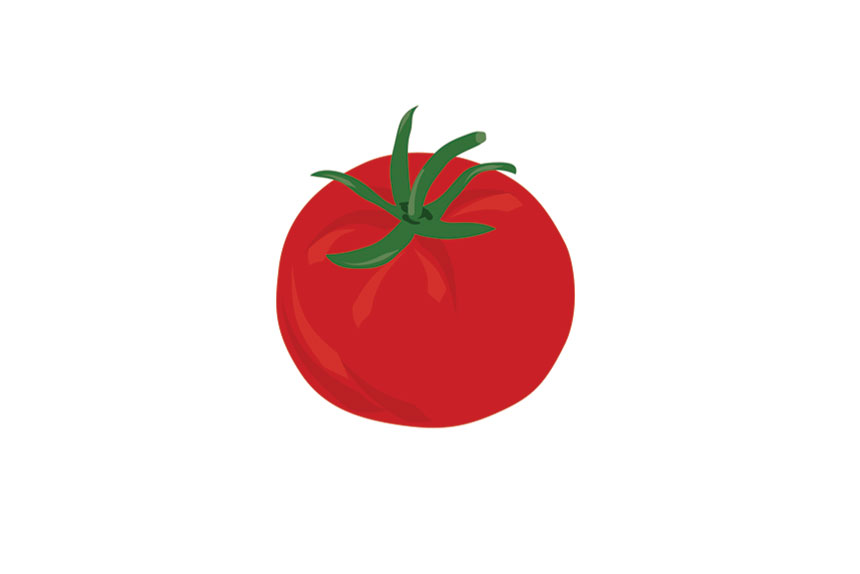Carl heard a motor and hobbled to the window. A rental truck sat in the driveway of the vacant house next door. A car pulled in behind the truck and a family began unloading, watched over by an elderly man leaning on a cane. They were Oriental, and Carl heard jabber in some language he did not understand and decided they were Chinese. All Orientals were probably Chinese according to Carl. He would keep an eye on them, though there was nothing he could do about it.
After the truck was unloaded and the belongings moved inside, Carl saw the family standing in the backyard looking around, so he decided to go to his shed and make sure it was locked. There wasn’t much in there: a few gardening tools (he didn’t garden anymore), an old mower, and a broken weed trimmer. When he stepped out the back door, the group of foreigners looked at him and one of the young men gave a friendly wave. Carl ignored him and headed for his shed, waiting inside until they were gone.
* * *
The next morning there was a knock on his door. When Carl opened it, he saw the same young man who had waved at him the day before. “Hi,” the man said. “I’m Ray Shimado, your new neighbor.” He said this without any accent that Carl could detect.
“Well … okay,” Carl said.
The young man looked confused, but continued, “Actually, my great-grandfather is your neighbor. I go to school and will be away most of the time. His name is Haruo Shimado.”
This was more than Carl wanted to know. “Well … okay,” he said again and closed the door.
* * *
The old neighbors were dead, the ones that had lived in the house next door for thirty years before the Chinese, and Carl missed them. Bob went first, lost his marbles and started to wander. One morning he fell in the bathroom — hit his head and died. Then they had moved his wife to an old-person warehouse where she, too, had died. Since then, renters had come and gone, as renters do. Renters don’t take care of things, and Carl remembered how Bob had always taken care of things before he went crazy. Now Carl had Chinese living next door.
* * *
That evening Carl saw the old man standing in his back yard staring, then watched as he began to poke at the grass and dirt with his cane. The next day a sad-looking tomato plant lay on its side where the old man had been standing. It appeared to have been just stuck in the clay, and the leaves were beginning to curl from lack of water. Carl didn’t see anyone and walked over to the rusty fence.
“Growing tomato!” someone called. Mr. Shimado sat on his back steps, smiling.
Crap, thought Carl. Not like that you’re not.
“I grow fine tomato!”
Carl was reluctant to give advice, but he was old and it came naturally. “Mr. Shimado! A word!”
With effort, Mr. Shimado hobbled over to the fence. “Neighbor-chan,” he said.
Carl frowned. “I don’t speak Chinese,” he said.
“Japanese. I am Japanese,” Mr. Shimado said.
Oh, great! Carl thought. This had already gone further than he’d intended. Mr. Shimado was staring at him. Don’t Japanese know how to grow tomatoes? No wonder they lost —
“Come,” said Mr. Shimado, who turned and walked toward his house. Carl stood for a minute, opened the rusted gate, and followed.
* * *
Carl sat at Mr. Shimado’s kitchen table while his host hobbled to the refrigerator and got out two cans of beer, without asking Carl if he wanted a beer. Carl looked around. The kitchen looked pretty much like when Bob lived there, just different knick-knacks. Mr. Shimado plopped the can of beer down in front of him. “Drink,” he said, popping his can. “I dragon man — nineteen hundred forty.” Mr. Shimado sipped. “You?”
“Baptist, I guess,” Carl said.
Mr. Shimado laughed. “Year born?”
The beer can had funny writing on it. Carl took a swallow of beer and liked it. “Nineteen forty-one.”
Mr. Shimado laughed again. “Ah! You snake! That why you no talk.”
They were both war children. Carl wasn’t sure how he felt about being called a snake but could see no offense was meant.
* * *
Over the next week (and a few cans of Japanese beer), Carl showed Mr. Shimado how to build a Japanese tomato ring. How strange, he thought, that he was showing a Japanese how to make a Japanese tomato ring. Of course, the tomato ring was not developed in Japan, but in South Carolina in the 1950s. It received its name from a newspaper screw-up. Carl didn’t know this, but Mr. Shimado did.
Carl showed Mr. Shimado how to prepare a small hole with layered compost, fertilizer, and lime — alternating layer upon layer. When the hole was ready, Carl found a piece of wire fence and made a ring around the whole affair. It wasn’t easy: Carl could stoop but not stand back up without effort, and Mr. Shimado could not stoop at all, but was content mostly to watch Carl from the back steps. Carl realized he was doing all the work but decided it was all right.
“We grow fine tomato,” Mr. Shimado called from time to time in an encouraging tone.
“We?” asked Carl, struggling to stand. Finally, all was done except for the planting.
“You snake. I dragon,” said Mr. Shimado, throwing back his head and smiling, like an ancient carving. “Come — help up. Beer time.”
* * *
The next morning Carl went to the nursery center and bought tomato plants for Mr. Shimado. I should have him plant them himself, he thought, though he knew his neighbor could not manage it. When he returned home there was no Mr. Shimado, so Carl watered the plants and left them on his steps.
* * *
There was no Mr. Shimado the next day either, or the next. Carl began to worry but told himself it was none of his business. He would just go ahead and plant the tomatoes around the ring before they died. “They need to be in the ground,” he said to the absent Mr. Shimado.
* * *
That night there was a knock on his door. It was the great-grandson, Ray, holding a paper sack. He looked sad and tired. “Hello,” he said. “My great-grandfather passed away yesterday. I took him out to eat and he started to feel unwell. His heart just gave out.” Ray paused, then, “He was very old.”
Carl looked over toward his neighbor’s house. “I’m sorry,” he said, and he was — more than young Ray could know; for Carl had thought that to age was to escape death, at least for a time, but the longer he lived the more he saw its handiwork. “Would you like to come in?”
Ray shook his head. “Thank you — but I’ve got a million things to do.” He nodded toward the house. “I want to thank you for spending time with him and helping with the tomatoes. It meant a great deal to him.” He pulled a book from the sack and handed it to Carl. It was in Japanese. Ray explained, “It is Vegetable Secrets by Haruo Shimado. He was a famous gardener at one time.” The cover pictured luscious, ripe tomatoes growing through a tomato ring. A young, smiling, long-haired Haruo Shimado faced the camera. Carl opened the book and read the shaky script: To Snake from Dragon.
Ray looked down again at the paper sack in his hands. “He … he also wanted you to have this,” he said, pulling a small green bowl out of the sack and holding it out to Carl. It looked very old and had been broken in several places. The pieces appeared to be held together with gold. A repaired bowl. Carl didn’t understand.
“It’s kintsugi,” Ray explained. “Very old. The breakage and repair are part of the history of the bowl … part of its beauty.”
“Oh,” Carl said.
“The repairs are real gold. It was last broken in 1945. August ninth. Great Gran did not speak of it, but it is family history.”
“Nineteen forty-five — August ninth — but that —”
“Nagasaki. He was a child. The bowl was on a bookcase that fell on his leg,” Ray said. “Anyway … he wanted you to have it.”
“But I can’t — it — ”
“Please — it was his wish.” The young man offered the bowl. Carl’s hands trembled as he took it.
* * *
Mr. Shimado’s bowl and gardening book sit on Carl’s mantel. He cannot read the book, but from time to time he looks at the pictures of the fruits and vegetables; and the sun, if it is just right, reflects on the gold of the bowl and warms the room. Mr. Shimado’s house sat empty for the summer, and Carl continued to water and care for his neighbor’s tomatoes, which grew large and beautiful, and Carl ate them.
Become a Saturday Evening Post member and enjoy unlimited access. Subscribe now




Comments
Usually read non-fiction, however this was such a great story that I loved it.
Going to look up my birth year to see what sign I am.
If this was 4th runner up,first 3 must be really great!!
What a pleasant read on a Saturday evening. Both characters warmed my heart. I was glad that Carl ate the tomatoes he and Mr. Shimano had grown. A worthwhile labor in this story produced fruits.
A brief, but fascinating intersection of two lives where these seemingly unalike men would become friends. Mr. Shimado broke the ice offering Carl the beer, and did so several times. Carl helped him with the planting of the tomatoes. Both being children of World War II, Carl did harbor racial prejudice towards Asians as evidenced in the first several paragraphs; indeed thinking all of them were Chinese.
Still, he was coming around in his thinking even before the neighbor died. I think Carl was genuinely touched by the book the great-grandson gave him that Shimado had written, with his younger self on the cover, and the special inscription inside to Carl. The bowl had a lot of significance Carl appreciated. It really is a wonderful story, Gary. Thank you.
I knew the Dragon had a sense of humor and a good heart….the minute he offered Carl a beer.
Wonderful story! Thank you.